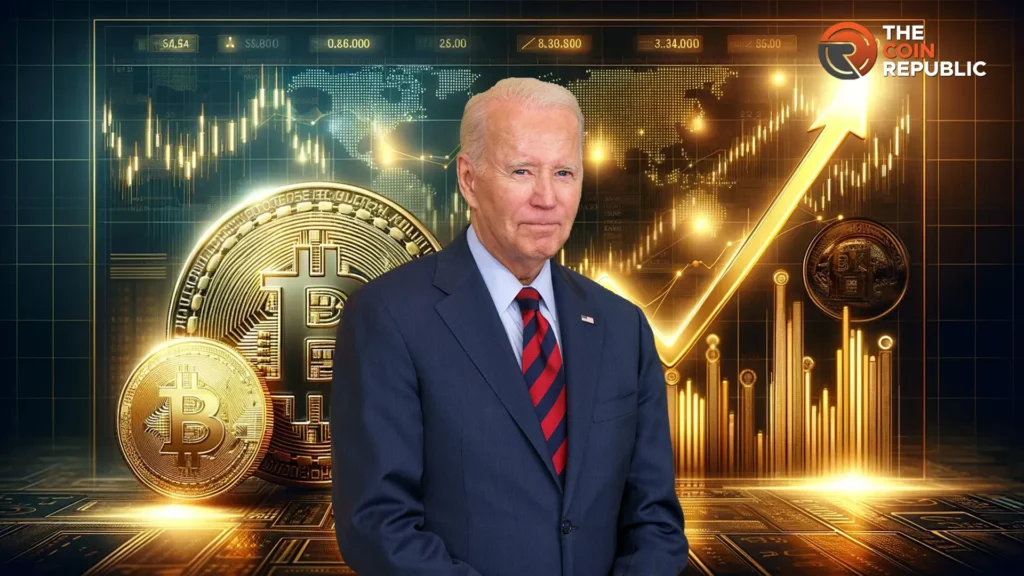President Joe Biden has vetoed a resolution aimed at overturning the U.S. Securities and Exchange Commission’s (SEC) Staff Accounting Bulletin No. 121
President Joe Biden of the United States vetoed a resolution that sought to nullify the Staff Accounting Bulletin (SAB) No. 121 of the U.S. Securities and Exchange Commission (SEC).
“By reversing the judicious judgment of SEC staff in this manner, the SEC’s broader authorities on accounting practices risk having their authority undermined,” Biden wrote in an official response to the vote by Congress to repeal the cryptocurrency accounting guidelines.
These guidelines mandate that institutions holding crypto assets should classify crypto holdings as liabilities on their balance sheets.
The proposed guidelines were scheduled to be implemented on April 11; however, they encountered significant opposition from legislators and the cryptocurrency community.
By a margin of 228 to 182, House of Representatives members voted to repeal the SEC’s guidance and advanced the bill to the Senate. Senators voted to repeal SAB-121 by a substantial margin of 60 to 38 once they arrived.
“We are dismayed that the administrator disregarded the concerns of bipartisan majorities in both houses of Congress that acknowledged the detrimental effects of SAB 121,” the Blockchain Association, an advocacy group for cryptocurrencies, wrote in an X post.
Cynthia Lummis, a senator from the United States, argued that Biden’s intervention was contrary to the “will of the American people” because it prevented the revocation of the guidelines.
Israel begins a digital shekel pilot program
Israel is determined to accelerate the development process of the digital shekel, its central bank digital currency (CBDC).
The Bank of Israel (BoI) intends to collaborate with multiple service providers to develop a sophisticated digital payments ecosystem built around the digital shekel.
The Bank of England and the Bank for International Settlements (BIS) collaborated on the Project Rosalind experiment. The objective is to create application programming interface (API) prototypes.

To fulfill the challenge, the BoI shall furnish a prototype environment affixed to an API layer. Participants will develop real-time CBDC payment systems for the general public in the competition.
Paraguay continues its assault on cryptocurrency mining.
Property comprising 2,738 cryptocurrency mining devices was seized in Salto del Guairá, Paraguay, after the identification of an unmetered power connection in the vicinity by the National Electricity Administration (ANDE).
The nation’s Senate is debating a bill prohibiting crypto mining and other activities related to cryptocurrencies, pending the enactment of comprehensive legislation and assurances from the national power supplier.
By employing artificial intelligence and power distribution analysis, ANDE successfully identified electricity theft, which amounted to an estimated monthly value of 1.1 billion guarani ($146,000).
Additionally, five transformers were seized from the property. Criminal charges may be levied against the administrators of the illicit entity.
Although the results of at least two additional searches against illicit cryptocurrency farms—one in Salta del Guairá—conducted in Paraguay in May were considerably less spectacular, multiple government agencies were involved in each action, including the National Police of Paraguay.
Hong Kong expels all unlicensed cryptocurrency exchanges
Legally, all cryptocurrency exchanges in the region must terminate operations immediately if they have yet to apply for an operational license from the Securities and Futures Commission (SFC) of Hong Kong.
Hong Kong regulators issued cryptocurrency exchanges an explicit request on February 29 to reduce investor risk: either file for a license by that date or cease operations within three months.
Over twenty-two cryptocurrency exchanges submitted license applications to maintain their regional presence during this period.
Nevertheless, in the end, many of these exchanges opted to retract their applications shortly before the deadline.
Although most exchanges refrained from explaining the unexpected development, Gate, headquartered in Hong Kong, did.
A “significant overhaul” of HK’s trading platform was necessary to meet Hong Kong’s regulatory requirements.
